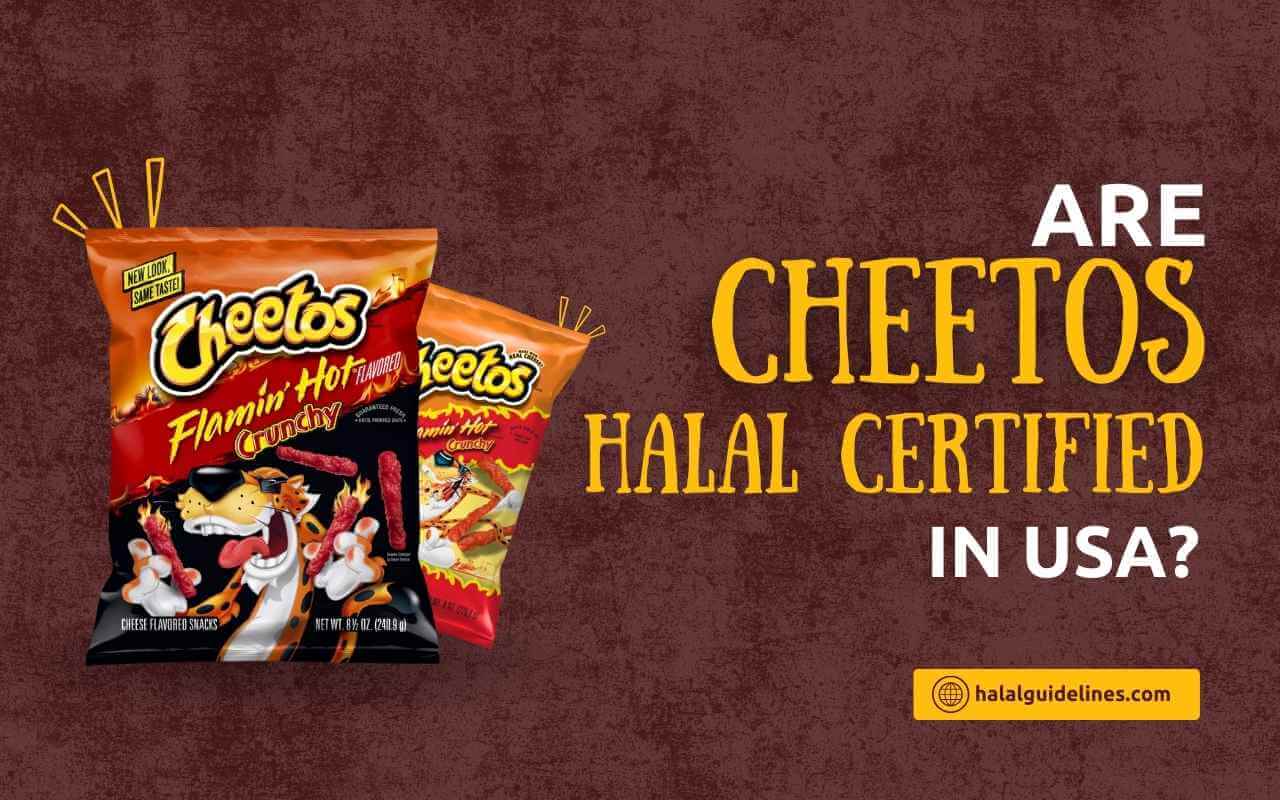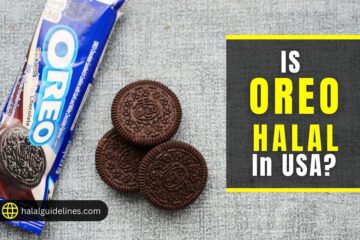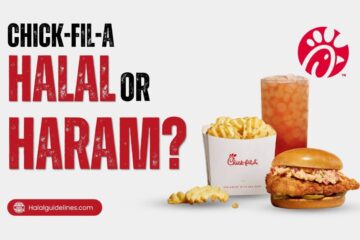Why Are Cheetos Not Halal-Certified?
Cheetos, which are made by Frito-Lay, do not have an official halal certification in the USA. This is important because halal certification means that a product has been reviewed and approved by halal authorities, making sure that it meets Islamic dietary standards. The lack of certification for Cheetos raises some concerns for Muslims who want to verify their snacks are permissible to eat.
Here are some reasons why Cheetos might not be considered halal:
1. Enzymes in Cheese:
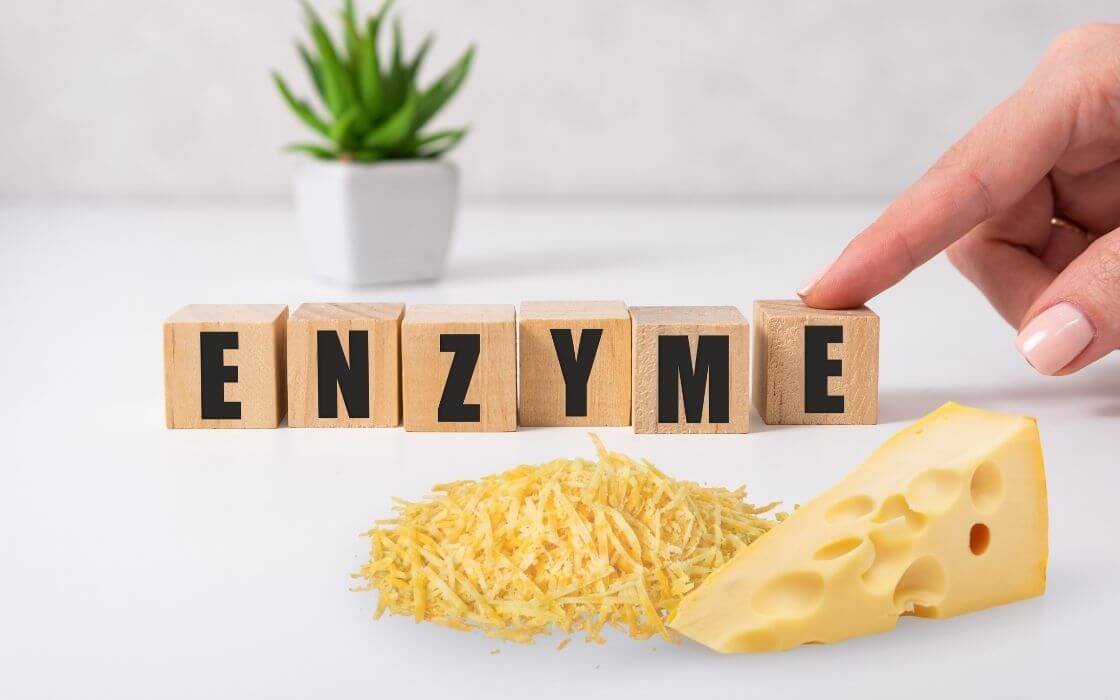
One of the main ingredients in most Cheetos varieties is cheese flavoring. The enzymes used in making cheese can sometimes come from animal sources. If these animals were not slaughtered according to Islamic guidelines, the cheese and therefore the Cheetos would not be halal. This is a significant concern for those who strictly follow halal dietary laws.
2. Cross Contamination Risks:
Cheetos are produced in facilities that may not be halal-certified. This means there is a chance that Cheetos could come into contact with non-halal ingredients during the manufacturing process. Cross-contamination can happen when equipment used for halal products is also used for non-halal items. For many Muslims, this risk is enough to avoid the product altogether.
3. Natural and Artificial Flavorings in Cheetos
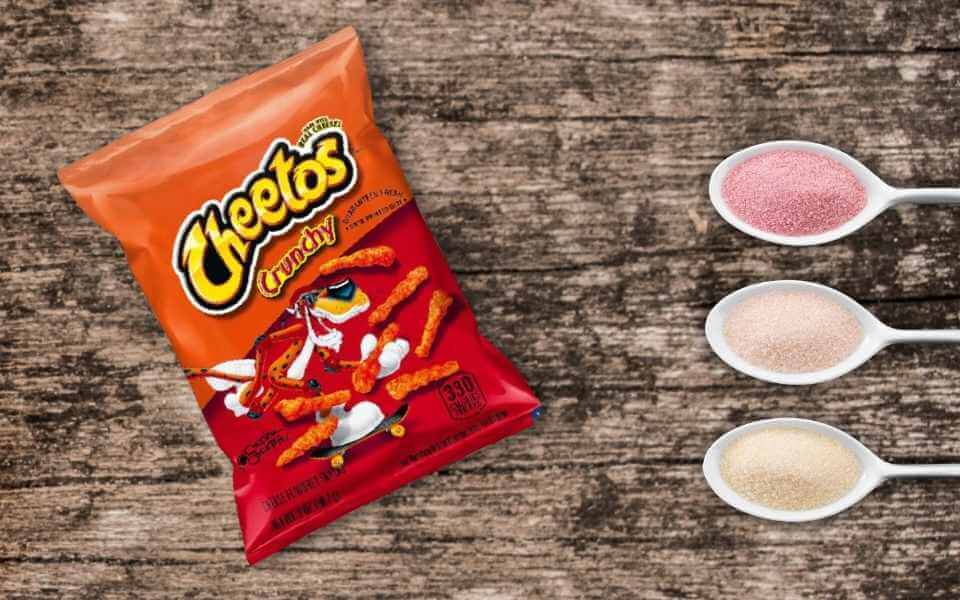
Many snacks, like Cheetos, use natural and artificial flavorings to make them taste better. The sources of these flavorings are not always easy to understand. Some flavorings might come from non-halal ingredients, which can make the entire snack haram (forbidden in Islam). Without clear labels or halal certification, it’s hard for consumers to know what’s really in their favorite snacks.
4. Lack of Transparency:
The company does not provide detailed information about its sourcing and production practices. This lack of clarity makes it difficult for consumers to make well-informed choices. Knowing the exact sources of ingredients can help people determine if a product aligns with their dietary needs.
5. Consumer Preference for Halal Options:
As the demand for halal products grows, many brands are now seeking halal certification to appeal to Muslim consumers. So, Frito-Lay has not yet made this step for Cheetos in the USA. This decision could be seen as a missed opportunity to cater to a significant market segment.
More content to read below:
Why Cheetos Varieties May Not Be Halal
In the USA, none of the Cheetos flavors are officially certified as halal. This means that Muslim consumers cannot be certain that the ingredients and production methods meet Islamic dietary standards. So, it’s still useful to understand why each Cheetos variety might not be considered halal,
Let’s have a closer look at some of the most popular flavors:
1. Cheetos Crunchy:
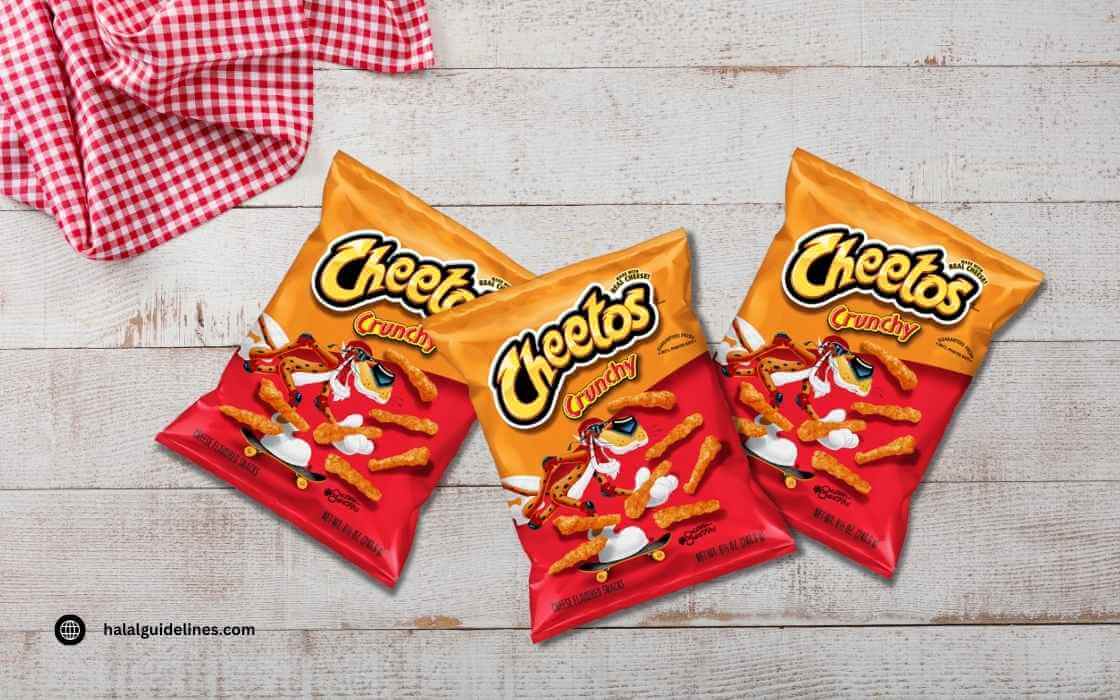
The traditional Crunchy Cheetos are known for their iconic cheesy flavor and crispy texture. However, a major concern is the type of enzymes used to create the cheese flavoring. These enzymes can come from animals, such as cows or pigs, which may not have been slaughtered according to Islamic guidelines. If these enzymes are animal-derived, it would make Cheetos Crunchy non-halal.
2. Cheetos Flamin Hot:
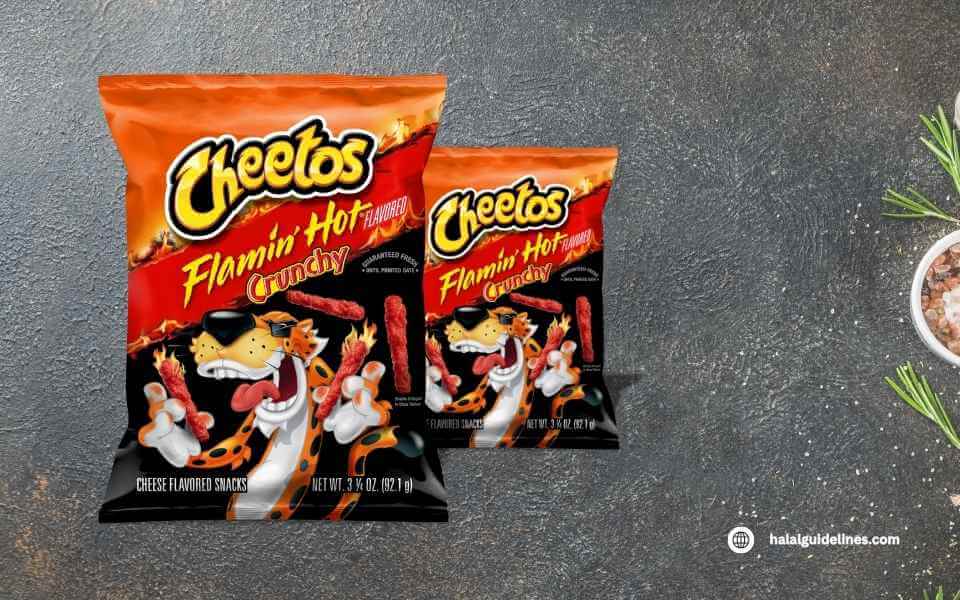
Flamin’ Hot Cheetos are a fan favorite due to their spicy kick and intense flavor. But similar to the Crunchy variety, Flamin’ Hot Cheetos also contain cheese and seasonings that may use non-halal enzymes. Some Muslims might consider them permissible if the enzyme source is synthetic or plant-based. However, without this confirmation, it’s best to avoid them.
3. Cheetos Puffs:
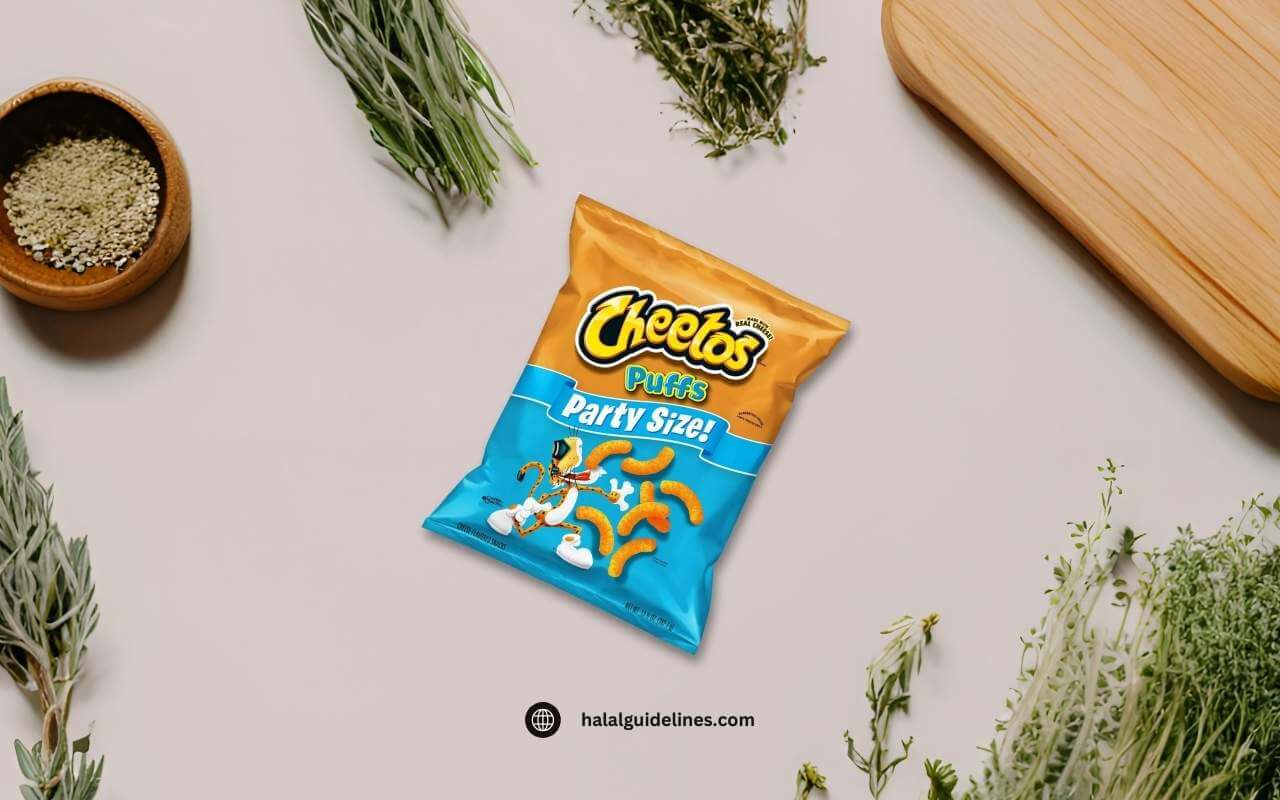
Cheetos Puffs have a lighter texture and a puffy shape, but they share the same problem as other Cheetos flavors: the cheese powder. The cheese powder in Cheetos Puffs can also contain enzymes derived from animals. If these enzymes are not halal-certified or if the cheese contains non-halal animal rennet, then Cheetos Puffs are not permissible to eat.
4. Cheetos Baked:
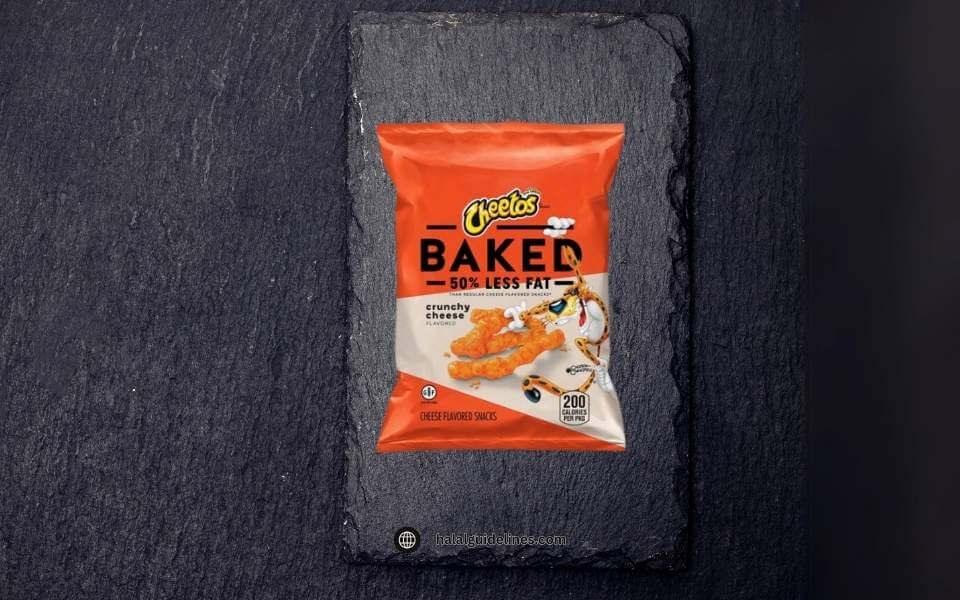
Cheetos Baked are marketed as a healthier option because they contain less fat compared to the regular Crunchy or Flamin’ Hot varieties. However, the ingredients are almost identical to the regular versions, including the cheese powder which may use non-halal enzymes. While they might be a better choice for health reasons, they still raise the same halal concerns due to the cheese used in the recipe.
While it’s tempting to enjoy the different flavors of Cheetos, none of the options available in the USA can be considered fully halal due to the use of questionable enzymes and ingredients. Without a halal certification, the source of these ingredients remains unclear, making it difficult for us to confidently include Cheetos in our diet.
Which Cheetos Products Are Halal Globally?
Interestingly, some Cheetos varieties outside of the USA may carry a halal certification. For example, in regions like the Middle East and the UK, you might find halal-certified Cheetos. This is due to local regulations and the demand for halal products.
If you are traveling or shopping online, look for these options:
- Halal Cheetos from the UK or Middle East: These carry a halal logo on the packaging, verifying that all ingredients meet Islamic dietary standards.
- Other International Brands: Some snacks similar to Cheetos are halal-certified, such as Al-Baik or Mr. Krisps, which are available in international markets.
- Halal Cheetos in Southeast Asia: In countries like Malaysia and Indonesia, Cheetos often have local halal certification.
When in doubt, always look for a halal certification symbol or contact the manufacturer directly to confirm the halal status. This will help you make more informed choices, especially when shopping internationally.
Halal Or Haram Status of Popular Snacks in the USA
Everyone loves snacks, but it can be hard for Muslims in the USA to know which ones are halal. Many snacks don’t clearly show if their ingredients are halal or not. To help you out, we have made a table that shows the halal status of some popular snacks. This way, you can easily see which snacks are safe to eat and which ones to avoid.
| Snack Brand | Status | Reason |
| Doritos (Cheese Flavors) | ❌ Not Halal | Contains cheese powder with animal-derived enzymes |
| Lay’s Classic Chips | ✅ Halal | Made with simple ingredients like potatoes, oil, and salt |
| Pringles | ✅ Halal | (Original, Salt & Vinegar, Honey Mustard Pringles) These are halal |
| Takis (Fuego Flavor) | ✅ Halal | Spices and flavorings may include non-halal sources |
| Ritz Crackers (Cheese Varieties) | ❌ Not Halal | Cheese powder may contain non-halal enzymes |
| Haribo Gummies (USA) | ❌ Not Halal | Uses pork-derived gelatin in most products |
| Haribo Gummies (Turkey) | ✅ Halal | Halal-certified and uses beef-derived gelatin |
Practical Tips to Identify Halal Snacks in the USA
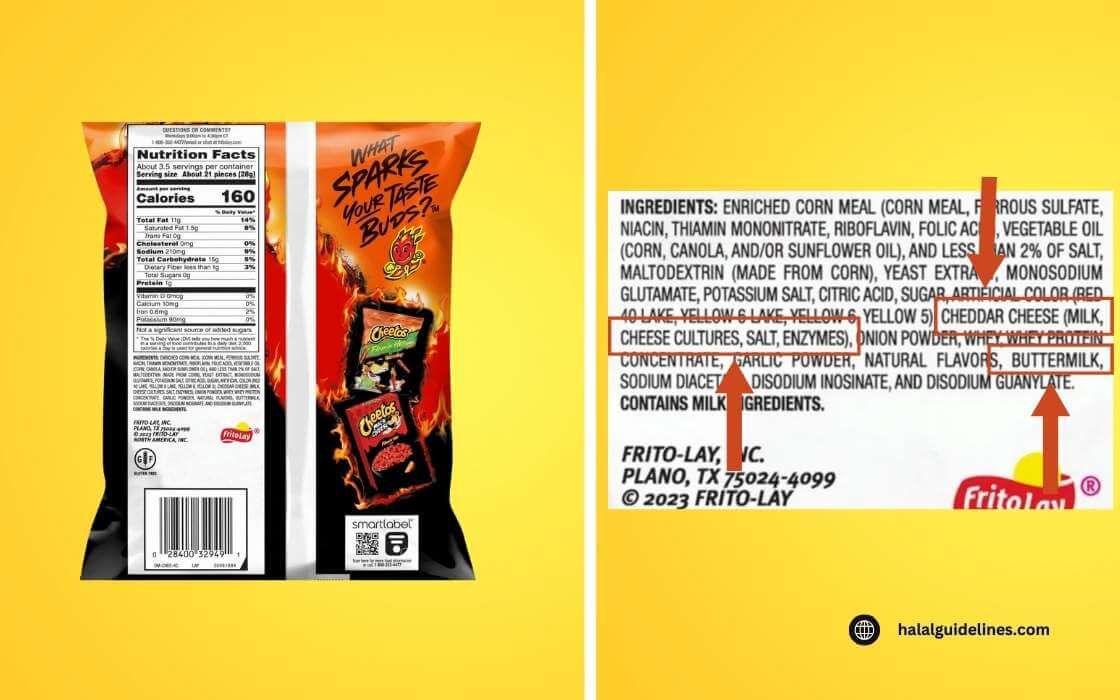
If you are not sure if a specific Cheetos flavor is halal, use these tips to make a more informed choice:
- Check the Ingredient List: Look for terms like “enzymes,” “natural flavors,” or “cheese powder.” If the source is not specified, it’s better to avoid it.
- Contact the Manufacturer: Reach out to Frito-Lay’s customer service and ask about the source of their enzymes and if any products are suitable for a halal diet.
- Opt for Halal-Certified Alternatives: Many brands now offer halal-certified cheese snacks, so it’s easier to find a substitute with a similar taste and texture.
Final Recommendation
While Cheetos in the USA are not halal-certified and should be avoided if you strictly follow a halal diet, there are still ways to enjoy similar snacks. Always check the label and ingredients, and when in doubt, reach out to the manufacturer for clarification.
May Allah guide us in making choices that align with our faith and keep our diets pure and permissible.
If you have any more questions about the halal status of snacks in the USA or want us to review a specific product, email us at [email protected]! We will help you and let you know the status of that specific product with reasons for being considered halal or haram.
More Questions Muslim Community Ask
Are Hot Cheetos halal for Muslims following dietary guidelines?
No, Hot Cheetos are not halal-certified in the USA, which raises concerns about ingredients that may not be permissible.
Can Muslims safely consume Baked Cheetos while following halal rules?
Baked Cheetos are not halal-certified, and the cheese powder used may contain non-halal ingredients.
Is it permissible to eat Flamin’ Hot Cheetos if I follow a halal diet?
Flamin’ Hot Cheetos are also not halal-certified, mainly due to the cheese flavoring that could contain animal-derived enzymes.
Which Cheetos varieties are halal in the USA?
None of the Cheetos varieties available in the USA are halal-certified, making them unsuitable for strict halal diets.
Are there any Cheetos types that Muslims can consider halal-friendly?
Currently, there are no halal-certified Cheetos in the USA. Consumers should look for halal certification symbols when choosing snacks.
Why are Cheetos classified as non-halal in the USA?
Cheetos lack halal certification due to concerns about animal-derived enzymes and potential cross-contamination during production. Without clear labeling, it’s hard to confirm their halal status.

